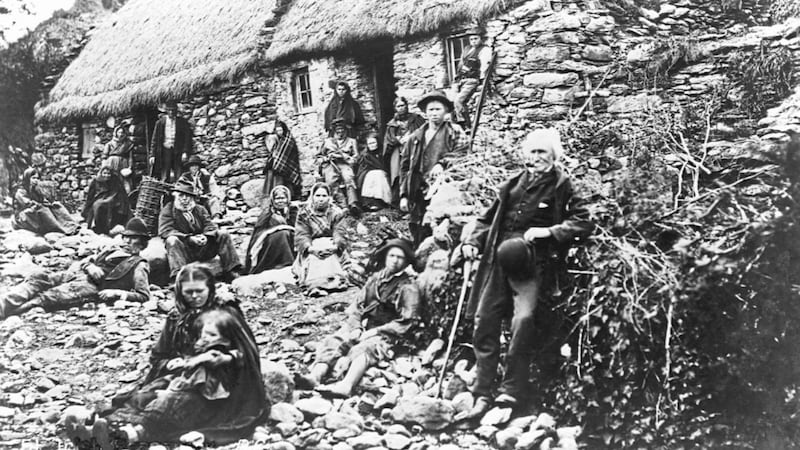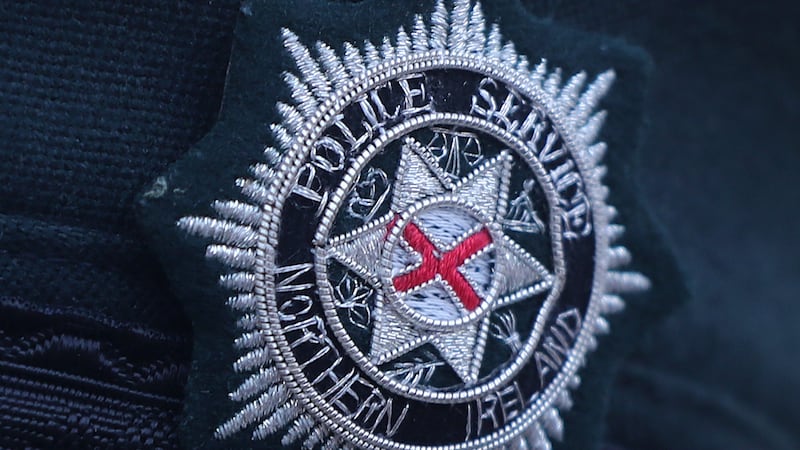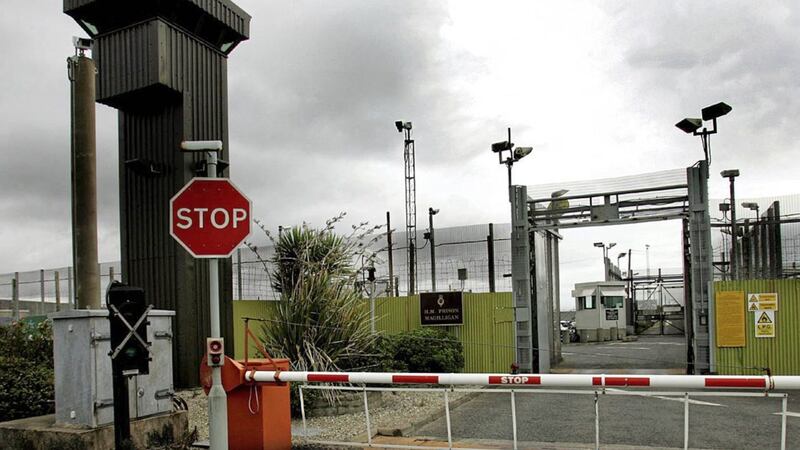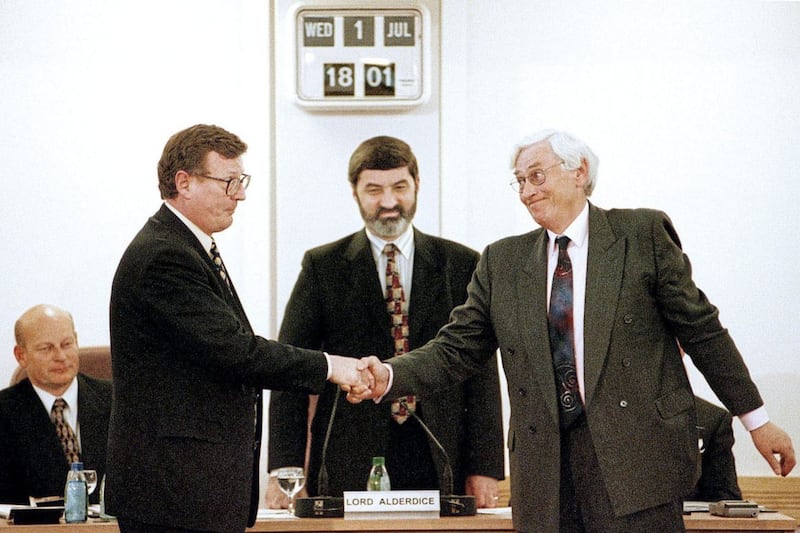Proposals to mark the 150th anniversary of the Great Famine with an ecumenical service in Liverpool to coincide with President Mary Robinson’s first visit to the UK were vetoed in 1996 by Prime Minister John Major.
Newly-released files show the service had been mooted for several years.
The possibility of a British event to mark the Famine was raised by Chris MacCabe from the Northern Ireland Office on August 15, 1994 in a note to officials.
He said Canon Nicholas Frayling was planning a service of contrition in Liverpool Anglican Cathedral in 1995 at which "Britain can express its deep regret for its treatment of Irish citizens 150 years ago".
Mr MacCabe noted: "To the Canon’s disappointment, I was less than enthusiastic … making the point that the dreadful events of the 1840s must be seen against the laissez-faire background of the time".
Mr MacCabe felt that such a service could "stir up more emotion than it spent".
His NIO colleague Tony Canavan wrote that "in adopting a defensive posture on the likely criticism of the British record in Ireland during the famine, it would be necessary to strike a balance between two extremes".
The extremes were a version of events which accused Britain of genocide and a "revisionist view" that "government action to assist the famine victims was simply alien to mid-Victorian thinking".
Mr Canavan highlighted "the strong suspicion that London would have reacted differently to a similar agricultural catastrophe in Wiltshire …"
In October 1995, the British Ambassador to Ireland, Veronica Sutherland pointed out that she had attended several memorial events, including an ecumenical service in Tuam.
"None of [the organisers] had suggested that any formal apology by the British for the events of 1845-49 is called for," she wrote.
Only Fianna Fáil leader, Bertie Ahern, had asked for an apology.
The ecumenical service in Liverpool was raised by Irish minister Avril Doyle at a dinner with Ms Sutherland.
Ms Sutherland noted that Anglican primate Robin Eames had given the address at Tuam and stressed the need for reconciliation.
Secretary of State Sir Patrick Mayhew felt the service "might do a lot of good".
However, in January 1996, Northern Ireland Office official Peter Bell told colleagues that by hosting such a service, the British government risked "perpetuating the Republican view of Irish history that the great problem is Britain’s relationship with Ireland whereas, in fact, it is the relations between the two communities within Northern Ireland".
Mr Bell’s concerns were shared by British Foreign Secretary, Malcolm Rifkind, who feared "provoking recriminations against Britain from Irish Nationalists..."
In February 1996, the NIO reported that Archbishop Eames and Presbyterian Moderator, Dr John Ross were "unenthusiastic" about the idea.
This development, coinciding with the breakdown of the IRA ceasefire at Canary Wharf, prompted Sir Patrick to withdraw his support.
In March 1996, John Major's private secretary stated the prime minister's strong opposition.
"Whatever we say, Government [and arguably Royal] attendance at such a service would look like an apology for the Famine and would surely revive debate about whether we owe such an apology… The Unionists are unlikely to sympathise…"








